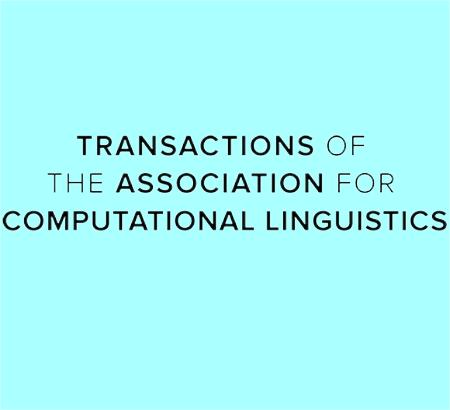On the Role of Negative Precedent in Legal Outcome Prediction
IF 4.2
1区 计算机科学
Q2 COMPUTER SCIENCE, ARTIFICIAL INTELLIGENCE
Transactions of the Association for Computational Linguistics
Pub Date : 2022-08-17
DOI:10.1162/tacl_a_00532
引用次数: 10
Abstract
Every legal case sets a precedent by developing the law in one of the following two ways. It either expands its scope, in which case it sets positive precedent, or it narrows it, in which case it sets negative precedent. Legal outcome prediction, the prediction of positive outcome, is an increasingly popular task in AI. In contrast, we turn our focus to negative outcomes here, and introduce a new task of negative outcome prediction. We discover an asymmetry in existing models’ ability to predict positive and negative outcomes. Where the state-of-the-art outcome prediction model we used predicts positive outcomes at 75.06 F1, it predicts negative outcomes at only 10.09 F1, worse than a random baseline. To address this performance gap, we develop two new models inspired by the dynamics of a court process. Our first model significantly improves positive outcome prediction score to 77.15 F1 and our second model more than doubles the negative outcome prediction performance to 24.01 F1. Despite this improvement, shifting focus to negative outcomes reveals that there is still much room for improvement for outcome prediction models. https://github.com/valvoda/Negative-Precedent-in-Legal-Outcome-Prediction论负面先例在法律结果预测中的作用
每一个法律案件都以以下两种方式之一发展法律,从而开创先例。它要么扩大其范围,在这种情况下,它开创了积极的先例,要么缩小了范围,在那种情况下,他开创了消极的先例。法律结果预测,即对积极结果的预测,是人工智能中越来越流行的任务。相比之下,我们在这里将重点转向消极结果,并引入了一项新的消极结果预测任务。我们发现现有模型预测积极和消极结果的能力存在不对称性。我们使用的最先进的结果预测模型在75.06 F1时预测阳性结果,而在10.09 F1时预测阴性结果,比随机基线更差。为了解决这一性能差距,我们开发了两个受法庭程序动态启发的新模型。我们的第一个模型将阳性结果预测得分显著提高到77.15 F1,第二个模型将阴性结果预测性能提高了一倍多,达到24.01 F1。尽管有了这种改进,但将重点转移到负面结果上表明,结果预测模型仍有很大的改进空间。https://github.com/valvoda/Negative-Precedent-in-Legal-Outcome-Prediction
本文章由计算机程序翻译,如有差异,请以英文原文为准。
求助全文
约1分钟内获得全文
求助全文
来源期刊
CiteScore
32.60
自引率
4.60%
发文量
58
审稿时长
8 weeks
期刊介绍:
The highly regarded quarterly journal Computational Linguistics has a companion journal called Transactions of the Association for Computational Linguistics. This open access journal publishes articles in all areas of natural language processing and is an important resource for academic and industry computational linguists, natural language processing experts, artificial intelligence and machine learning investigators, cognitive scientists, speech specialists, as well as linguists and philosophers. The journal disseminates work of vital relevance to these professionals on an annual basis.

 求助内容:
求助内容: 应助结果提醒方式:
应助结果提醒方式:


